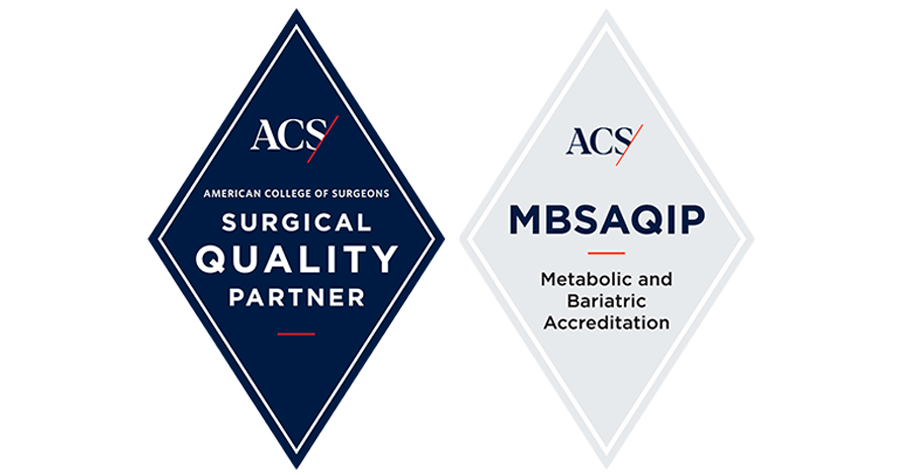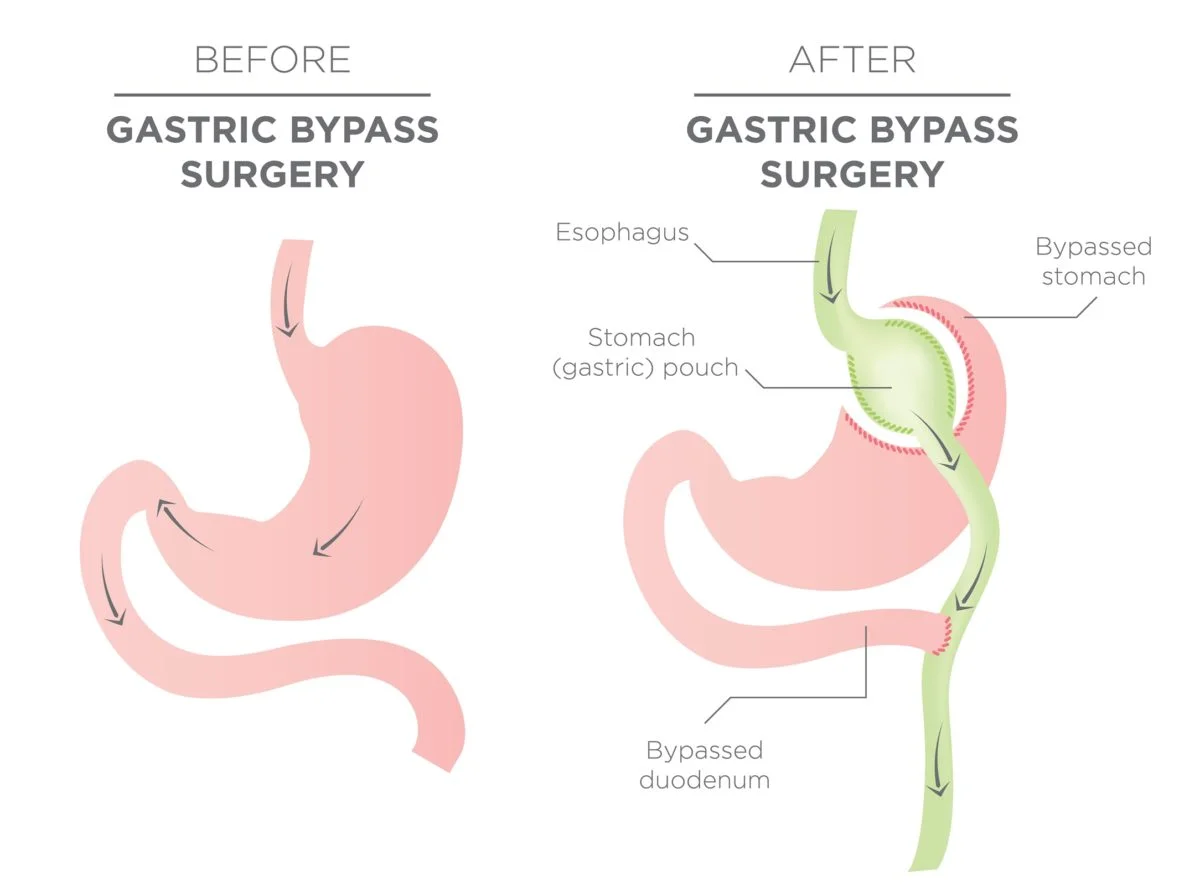Gastric Bypass
Want to know more about your bariatric surgery options? Speak with a Garnet Health weight loss expert by calling 845-333-2123.
Call: 845-333-2123 Find a Provider
Bariatric Surgery Seminar
We encourage anyone interested in weight loss surgery to attend one of our seminars. This will help to educate you and streamline the process.
View CalendarGastric Bypass Providers
Bariatric ProvidersWhat is Gastric Bypass?
Gastric Bypass is a surgery that helps you lose weight by changing how your stomach and small intestine handle the food you eat. Unlike Sleeve Gastrectomy and Gastric Banding, Gastric Bypass includes a surgical adjustment to a patient’s intestinal tract, changing the normal digestive process. This, paired with food restriction, reduces the amount a patient can eat while also reducing the body’s ability to absorb calories – and therefore, promoting weight loss.
In this reorganization of the digestive system, the bariatric surgeon creates a small pouch in the upper part of the stomach by stapling it together. The surgeon then attaches part of the small intestine to the new pouch, effectively “bypassing” the part of the stomach that has been sealed off.
The new digestive tract bypasses the lower stomach, the duodenum (the first segment of the small intestine) and the first portion of the jejunum (the second segment of the small intestine). This bypass reduces the amount of calories and nutrients the body absorbs.
Types of Bariatric Surgery
The kind of surgery determined best for you will be based on your overall health, lifestyle, and a number of other factors that you and your doctor will access together. At Garnet Health Medical Center, we offer three types of weight-loss procedures:
Always ask your physician about all treatment options, as well as their risks and benefits.
Do I Qualify for Gastric Banding Weight Loss Surgery?
One of the methods used to measure obesity is Body Mass Index (BMI). BMI is calculated by taking your weight in pounds and dividing it by your height in meters squared (BMI = kg/m2). Your BMI, along with your ideal body weight, is used to determine if you are a candidate for bariatric surgery.
- BMI of 40 or greater – you are a candidate for bariatric surgery. A BMI of 40 or greater means that you are 100 pounds or more over your ideal body weight.
- BMI of 35 – 39.9 - Surgery may be an option for you. If you are suffering from other serious health conditions, you can be considered for bariatric surgery even if your BMI is less than 40 and you are less than 100 pounds above your ideal weight. These conditions are referred to as comorbidities and can include, but are not limited to:
- Type 2 diabetes
- Heart disease
- Respiratory problems
- Sleep apnea
- Heartburn and reflux
- Depression
- Infertility
- BMI of 34.9 or under – You are not a candidate for bariatric surgery. We encourage you to talk to your doctor about your desire to lose weight. Your doctor can assist you in developing weight loss goals and a plan for successful weight loss.
Bariatric Surgery Seminar
If you have met the BMI requirements for bariatric surgery and would like to learn more about it, we’d like to invite you to attend our Bariatric Surgery Seminar! This is a free seminar and is open to anyone considering this life-changing procedure.
This is not a procedure that begins and ends in the operating room. This is a journey that the patient has chosen to take on that influences many significant aspect of how they live their lives.
There are also many mandatory steps and resources available to you to ensure the best possible outcome from your surgery – our Bariatric Seminar explains the entire process with presentations by our bariatric surgery program manager and one of our Board-certified Bariatric surgeons.
We encourage anyone interested in Bariatric Surgery to attend one of our seminars. This will help to educate you and streamline the process.
Additional Resources
For more information, contact the Bariatric Surgery office at 845-333-2123.

MBSAQIP Accredited Center
Garnet Health Medical Center is designated by the American College of Surgeons Metabolic and Bariatric Surgery Accreditation and Quality Improvement Program as a Bariatric Comprehensive Center with Obesity Medicine Qualifications. Learn more about our Program.
Learn moreBariatric Medicine Providers
Related Bariatric News

March 2, 2026
Psychology - Emotional Eating, Head Hunger & Triggers Before and After Surgery
Important TruthBariatric surgery changes your stomach.It does not automatically change your relationship ...

February 1, 2026
Protein, Hydration & Micronutrients
Protein, Hydration & Micronutrients: The Long-term Trio for Bariatric SuccessIf you’re months—or even...

December 30, 2025
Resetting Expectations After Bariatric Surgery: What Success Really Looks Like
Bariatric surgery is often described as a “life-changing” tool—and it truly can be. But many patien...

December 2, 2025
Considerations for Having Plastic Surgery After Bariatric Surgery
For many people on the bariatric journey, weight loss is not just about the number on the scale—it’s ...
Upcoming Bariatric Events
Weight-loss
Bariatric Weight Loss Surgery Seminar
Tuesday, March 3, 2026
6:00 pm - 7:30 pm
Weight-loss
Bariatric Surgery Support Group
Tuesday, March 3, 2026
7:30 pm - 8:30 pm
Weight-loss
Bariatric Surgery Pre-Op Class
Thursday, March 12, 2026
6:30 pm - 8:30 pm
Weight-loss
Bariatric Weight Loss Surgery Seminar
Tuesday, March 17, 2026
6:00 pm - 7:30 pm
Weight-loss
Bariatric Surgery Support Group
Tuesday, March 17, 2026
7:30 pm - 8:30 pm
Weight-loss
Bariatric Surgery Pre-Op Class
Thursday, March 19, 2026
1:00 pm - 3:00 pm






